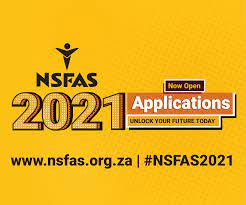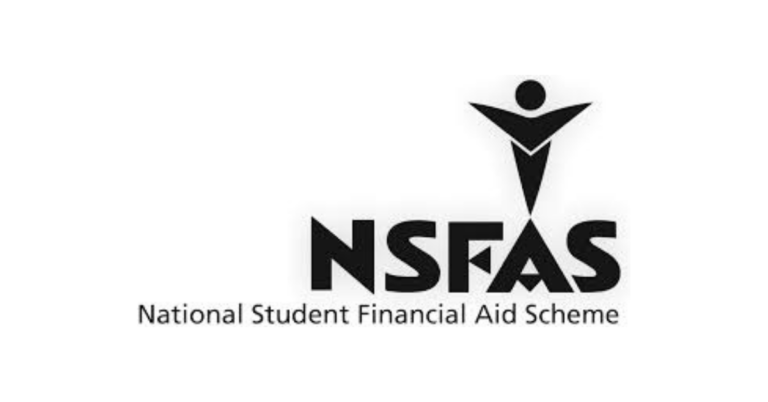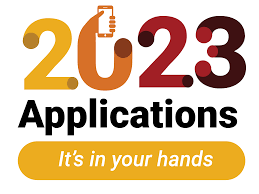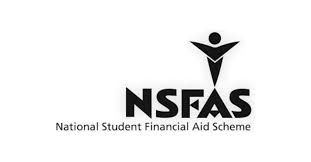UNISA Student Loan for Students (How to Apply) – A Detailed Guide
The University of South Africa (UNISA), as one of the largest distance education institutions in the world, provides a wide array of learning opportunities for students. However, like many universities, UNISA students may face financial challenges in pursuing their education. To help alleviate these financial burdens, UNISA students can apply for a student loan to fund their tuition, textbooks, and other essential costs.
In this article, we’ll guide you through the process of applying for a student loan at UNISA, including eligibility criteria, types of loans available, and essential tips to ensure a successful application. Let’s dive into everything you need to know about securing financial aid for your studies at UNISA.
What is a UNISA Student Loan?
A UNISA student loan is a financial aid package designed to help students pay for their tuition fees, study materials, and other academic-related expenses. Unlike grants or bursaries, student loans generally require repayment after graduation, often with interest. The main difference between a loan and a bursary is that loans must be paid back over time, while bursaries are often offered as non-repayable financial assistance.
While UNISA itself does not offer direct student loans, students can access various loans through partner organizations, banks, and government schemes. Some of the most common sources of student loans for UNISA students are:
- NSFAS (National Student Financial Aid Scheme): A government-funded initiative offering loans and bursaries to South African students, often with a focus on supporting low-income families.
- Bank Loans: Many banks, such as Standard Bank, FNB, and ABSA, offer student loans with flexible repayment terms.
- Private Loan Providers: There are several non-governmental financial institutions that offer student loans with varying interest rates and repayment options.
Eligibility for a UNISA Student Loan
Before applying for a student loan, it’s important to understand the eligibility criteria set by the loan providers. While eligibility can vary depending on the type of loan, the following general conditions typically apply:
1. NSFAS Student Loans:
If you are applying for a loan through the National Student Financial Aid Scheme (NSFAS), you must meet certain requirements:
- South African Citizen: Only South African citizens are eligible for NSFAS loans.
- Financial Need: The household income of your parents/guardians must fall below a certain threshold (R350,000 per annum).
- Academic Performance: You must meet the academic requirements set by the institution (e.g., being registered as a full-time student and maintaining good academic standing).
- Undergraduate Study: NSFAS primarily funds undergraduate students; postgraduate students are generally not eligible.
2. Bank Loans:
For bank loans, the eligibility requirements can vary depending on the bank and the specific loan product. Generally, the following criteria apply:
- South African Citizen or Permanent Resident.
- Proof of Enrollment: You must show proof that you are enrolled as a student at UNISA.
- Age Requirement: Banks typically require that applicants be over the age of 18 and below the age of 35.
- Creditworthiness: Some banks will assess your credit history to determine whether you can repay the loan.
- Income Verification: Banks may require proof of income from yourself or your sponsor (parent/guardian).
3. Private Loan Providers:
Eligibility criteria for private student loans can vary greatly depending on the provider. Commonly required documents include:
- Proof of Enrollment: You must be a registered student at UNISA.
- Proof of Identity: A valid ID document, passport, or similar identification.
- Parental or Guardian Consent: In some cases, if you are under 21, the loan provider may require a parent or guardian to sign as a co-signer.
Types of UNISA Student Loans Available
There are several types of student loans available for UNISA students, each offering different benefits and repayment conditions. Understanding these types will help you choose the best option for your needs.
1. NSFAS Loans:
NSFAS offers financial aid to students from financially disadvantaged backgrounds. This loan is often structured as a bursary, meaning that if you meet the academic requirements and finish your degree on time, the loan may be forgiven.
- Amount: NSFAS covers tuition fees, textbooks, accommodation (if applicable), and living allowances.
- Repayment: If you meet the criteria for a bursary, you won’t have to repay the loan. If you don’t meet the criteria, you will be required to repay the loan after graduation.
- Interest Rate: There’s no interest on the loan if it is converted into a bursary.
2. Bank Loans:
Many South African banks offer student loans designed to cover tuition, accommodation, and other academic-related expenses. Popular banks offering student loans include FNB, Standard Bank, and ABSA.
- Amount: Loan amounts depend on the bank, but generally cover tuition fees, books, and other costs.
- Repayment: Bank loans must be repaid after graduation, and the loan period can range from several months to a few years.
- Interest Rate: Banks charge interest on these loans, which can vary based on the bank and loan terms.
- Flexibility: Banks typically offer flexible repayment options that allow you to choose between monthly payments or deferred payments (post-graduation).
3. Private Loan Providers:
Private loan providers also offer financial assistance for students. These loans may be available to students who don’t qualify for NSFAS or those who need additional funds beyond what NSFAS or banks provide.
- Amount: Varies depending on the loan provider and the loan terms.
- Repayment: Repayment terms are generally determined at the time of the loan agreement.
- Interest Rate: Private loans usually carry higher interest rates compared to NSFAS and bank loans.
How to Apply for a UNISA Student Loan
Applying for a student loan at UNISA generally involves a few steps, regardless of whether you’re applying for an NSFAS loan, a bank loan, or a private loan. Below is a step-by-step guide on how to apply for each type of loan.
1. Applying for an NSFAS Loan:
To apply for an NSFAS loan, follow these steps:
- Create an NSFAS Account: Go to the official NSFAS website at www.nsfas.org.za and create a MyNSFAS account if you don’t already have one.
- Complete the Application Form: Fill out the online application form with personal details, academic information, and family income information.
- Submit Required Documents: Upload supporting documents such as your ID, proof of income, proof of registration at UNISA, and proof of residence.
- Submit the Application: Once the application is complete, submit it online.
- Wait for Confirmation: You will receive updates on the status of your application through your MyNSFAS portal. If your application is successful, you will be notified of the funding approval.
2. Applying for a Bank Loan:
To apply for a student loan from a bank:
- Research Loan Options: Visit the websites of banks like FNB, ABSA, or Standard Bank to check out their student loan offerings.
- Prepare Required Documents: These will typically include:
- Proof of student registration at UNISA.
- Proof of identity (ID or passport).
- Income verification (personal or guardian’s).
- Submit Your Application: You can apply online or visit a bank branch to submit your loan application.
- Loan Approval and Payment: If your application is approved, the bank will disburse the funds to you or directly to UNISA, depending on the loan type.
3. Applying for a Private Loan:
To apply for a private student loan:
- Search for Loan Providers: Research various private financial institutions offering student loans.
- Compare Loan Terms: Compare interest rates, repayment schedules, and loan amounts from different providers.
- Submit Your Application: Submit the application form and required documents to the chosen provider.
- Wait for Approval: If the loan is approved, the funds will be provided based on the loan terms agreed upon.
A UNISA student loan can significantly ease the financial burden of pursuing higher education. Whether you apply through NSFAS, a bank loan, or a private loan provider, it’s essential to carefully review your options and ensure that you meet the eligibility criteria. Additionally, managing your loan wisely and understanding the repayment terms will be important for your long-term financial health.
By following the steps outlined in this guide, you can confidently apply for a student loan that will help you succeed in your academic journey at UNISA.
For more information on applying for a student loan, visit the official websites of NSFAS, FNB, ABSA, or Standard Bank, or contact your financial aid office at UNISA for additional support.
Let me know if you’d like further clarification or more details on a specific aspect of the student loan process!



